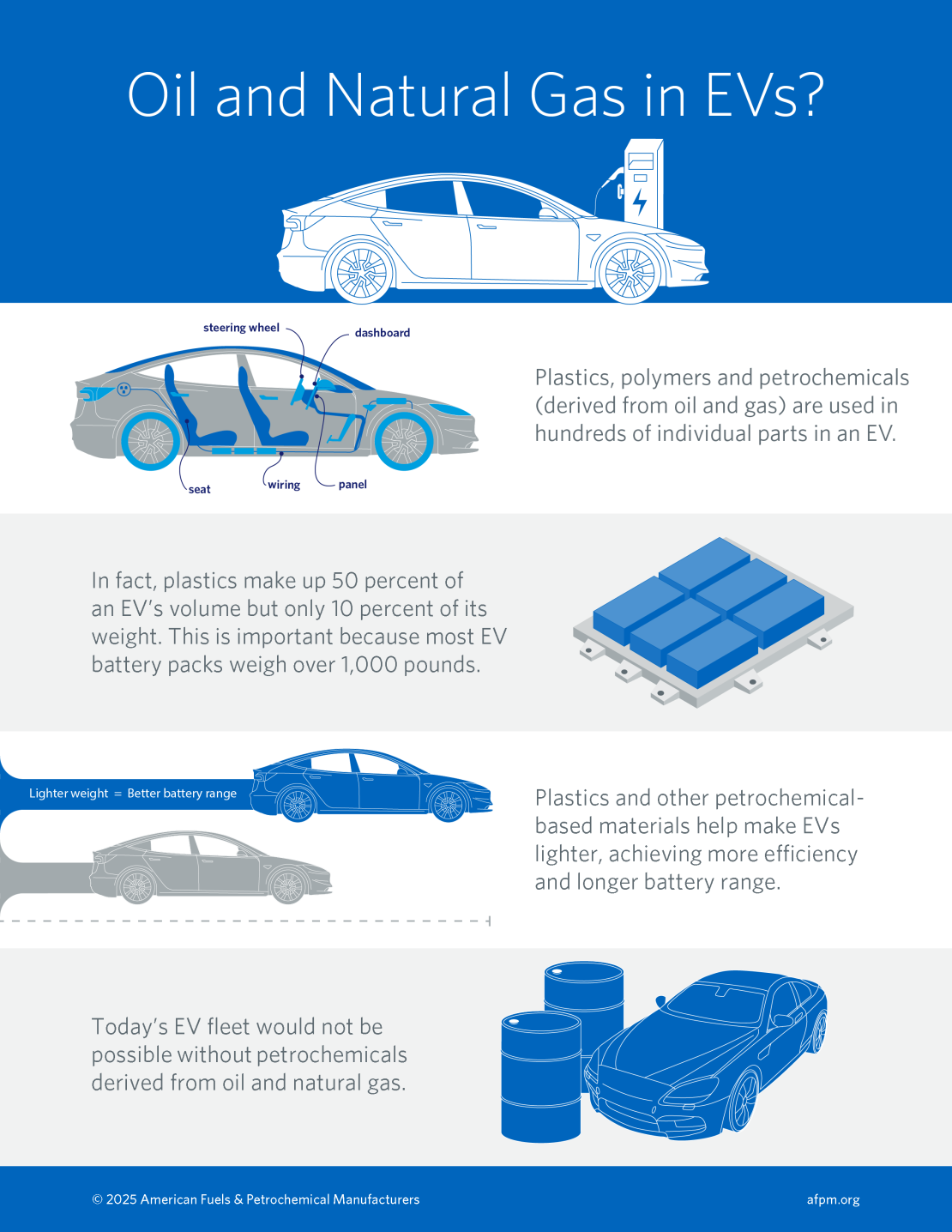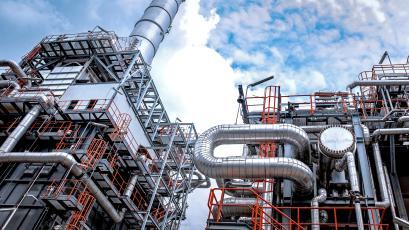Narratives that pit the refining and petrochemical industries against electric vehicles (EVs) ignore the symbiotic relationship of these industries. If you review the history of EVs – you will see that refining and petrochemical companies have been foundational to the EV market all along and will continue to be far into the future.
Let’s start at the beginning with the lithium-ion battery. In the 1970s, Dr. M. Stanley Whittingham rose to the forefront of battery innovation through the research he did while working for ExxonMobil. Dr. Whittingham’s research provided the basis for modern lithium-ion batteries and paved the way for the first commercial lithium-ion battery. This battery was the foundation of the batteries that now power laptops, cellphones and most EVs.
ExxonMobil has developed new technology to produce feedstock for next-generation graphite for EV battery anode material. This technology modifies the molecular structure of carbon-rich, low-value feeds from the company’s refining processes to create next-generation graphite that can deliver superior battery performance.
ExxonMobil’s role in the EV battery supply chain continues to evolve. The company announced plans to extract lithium-rich brine from deep underground and then convert it into battery grade materials. ExxonMobil aims to become a leading supplier of lithium for EV batteries.
AFPM member companies are also investing in improving battery technology. Arkema is developing specialty additives that improve electroconductivity, reducing the charging time of the battery. SABIC produces lighter-weight materials for battery packs that helps extend the range of electric vehicles.
In addition to battery technology, you can find plastics derived from petrochemicals throughout the body and component parts of cars of all types. But for EVs that have 1-ton batteries, light weight plastics are especially critical to keeping these heavy cars on the road safely and efficiently. In fact, plastics make up 50 percent of an EV’s volume but only 10 percent of its weight, significantly reducing the overall weight of these vehicles. This reduction improves efficiency and range allowing EVs to travel further on a single charge.
Investments extend beyond the cars themselves. For example, Chevron, through its venture capital arm Chevron Technology Ventures, has invested in Electric Era Technologies, which aims to make charging stations more accessible. The 2023 investment supports Electric Era’s effort to bring affordable and fast-charging stations to their convenience store and refill station partners.
These are highlights that demonstrate how refining and petrochemical companies are enabling the EV market, but the list of contributions is much longer.
As Chet Thompson, president and CEO, AFPM, explains, “Some may say that refiners and petrochemical companies oppose EVs, but the reality is that they are essential to the development and supply chain of these vehicles. You can’t have EVs without the products our members make; we’re proud of their role in advancing this market.”
The American Fuel & Petrochemical Manufacturers (AFPM) is the leading trade association representing the makers of the fuels that keep us moving, the petrochemicals that are the essential building blocks for modern life, and the midstream companies that get our feedstocks and products where they need to go. We make the products that make life better, safer and more sustainable — we make progress.



